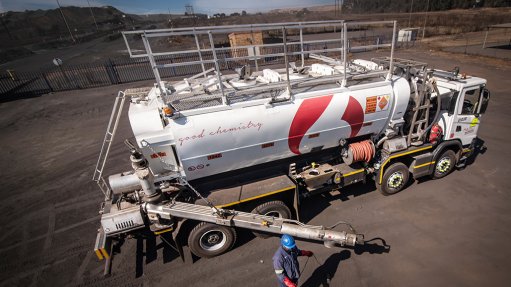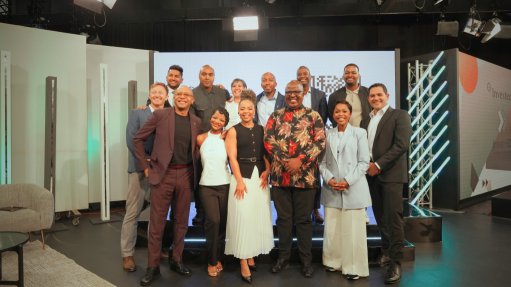The Internet is doing our children an injustice
Many years ago, a teacher called David H was trying to describe to a science class the concept of the inverse square law.
He said: “Imagine you had a butter gun and that, once the butter has been fired, it spreads out evenly. Then, if it was 3 mm thick at 1 m away from the gun, how thick do you think it would be at 2 m away from the gun?” He pointed out that, at 2 m, it would not be half of 3 mm thick but ¼ of that, since the butter had to expand in two directions. I have never forgotten the inverse square law, since I was one of the pupils David H taught.
It is unlikely that anybody today will teach the inverse square law using a butter gun analogy – you just get onto the Internet. Right? So I did that. I typed ‘Inverse Square Law’ into Google. Very confusing. The Wikipedia explanation relating to the inverse square law – “The fundamental cause for this can be understood as geometric dilution corresponding to point-source radiation into three- dimensional space” – was not very helpful. You can try other queries and they invariably are confusing.
The Internet is often wrong. For example, ask Google: “Who first patented the motor car?” Many sources say Karl Benz. But the Daimler website says it was Carl Benz. Mit einem C kein K.
Thus, a fundamental question arises: Is the Internet a good thing, educationwise? As an Australian commentator said, “our kids are a huge science experiment. They’re the first generation not to know what it is like not to have the Internet. Only time will tell if we have done them a service or injustice by how little or how much we allow them access to it.”
I cannot answer that question but, by looking over the shoulder of Thandokazi (our firm’s scholarship student), I think scholar Internet access is a good thing, but I am not sure if, minus the Internet and a laptop, she would have progressed as much. If she had to rely on information from books at her local library (which was only built last year), she would be far behind.
Educationwise, there is no doubt that electrical and electronic technology has made things simpler, but I cannot see that it has made things better. Ninety per cent of my staff cannot add a column of numbers manually. In fact, 90% cannot add up a column of numbers with a calculator right first time. Often, they bring me a total of some list of numbers and I look at the list and say: “Uh, wrong . . .”
I can do this since, when I was a student, I had to do it manually and later, with the first calcu- lators, still did a mental check. For them, calculators have always been there and, thus, they have had no training in mental arithmetic.
From an electrical engineering point of view, none of my staff (who have engineering degrees) can wire up a simple circuit. You can give them a timer, two relays, a battery and a circuit diagram, and two of them will take a whole morning to wire it up. On the other hand, they can whip through software programs and produce brilliant reports in a whole morning. Here, one gets a clue as to how they were educated – to be ‘hands off and computer orientated’, rather than ‘hands on’.
If we accept that this is a trend, to go from computerless and making something yourself and using it, to just buying something and using it (without being able to make it), what follows? Will future engineers just think of a concept and rely on a computer to produce a working result, if necessary constructed on a three-dimensional printer? If this is what follows, why would it be necessary to even have an engineer thinking of the concept? Is it possible that (at least electrical engineers) may become redundant? Oh . . . if so, to quote Martin Luther King Jr, I would be ‘Free at last, Free at last, Thank God almighty . . . free at last’.
Article Enquiry
Email Article
Save Article
Feedback
To advertise email advertising@creamermedia.co.za or click here
Press Office
Announcements
What's On
Subscribe to improve your user experience...
Option 1 (equivalent of R125 a month):
Receive a weekly copy of Creamer Media's Engineering News & Mining Weekly magazine
(print copy for those in South Africa and e-magazine for those outside of South Africa)
Receive daily email newsletters
Access to full search results
Access archive of magazine back copies
Access to Projects in Progress
Access to ONE Research Report of your choice in PDF format
Option 2 (equivalent of R375 a month):
All benefits from Option 1
PLUS
Access to Creamer Media's Research Channel Africa for ALL Research Reports, in PDF format, on various industrial and mining sectors
including Electricity; Water; Energy Transition; Hydrogen; Roads, Rail and Ports; Coal; Gold; Platinum; Battery Metals; etc.
Already a subscriber?
Forgotten your password?
Receive weekly copy of Creamer Media's Engineering News & Mining Weekly magazine (print copy for those in South Africa and e-magazine for those outside of South Africa)
➕
Recieve daily email newsletters
➕
Access to full search results
➕
Access archive of magazine back copies
➕
Access to Projects in Progress
➕
Access to ONE Research Report of your choice in PDF format
RESEARCH CHANNEL AFRICA
R4500 (equivalent of R375 a month)
SUBSCRIBEAll benefits from Option 1
➕
Access to Creamer Media's Research Channel Africa for ALL Research Reports on various industrial and mining sectors, in PDF format, including on:
Electricity
➕
Water
➕
Energy Transition
➕
Hydrogen
➕
Roads, Rail and Ports
➕
Coal
➕
Gold
➕
Platinum
➕
Battery Metals
➕
etc.
Receive all benefits from Option 1 or Option 2 delivered to numerous people at your company
➕
Multiple User names and Passwords for simultaneous log-ins
➕
Intranet integration access to all in your organisation


















